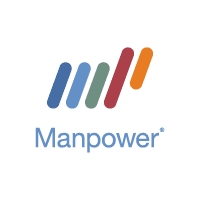As an IT specialist, you can’t exactly complain about your prospects on the job market right now. Your skills are in greater demand than ever before. However, IT skills alone are not enough to land your dream job. You also have to be convincing in the job interview – whether that’s in-person or online. After all, the success of your application will ultimately depend on the interviewer’s impression of you, with factors such as personality and compatibility with the corporate culture playing a pivotal role.
Job interviews are a real challenge, and preparation is half the battle. That’s why we want to provide you with ten tips on how to better your chances. The important thing is to replay the situation from the employer’s perspective.
Research
To understand things from your employer’s point of view, you first need to form an understanding of the company. After all, you want to work there – but why? What are you interested in? Which products are on offer, and which ones are planned? Look for specific examples, which can potentially be found by looking at demos or reviews. Research relevant markets, trends, and competitors. Find out what technologies and IT methods are being used. Many companies publish success stories and blogs that provide insights into in-house processes and the technologies used.
Consider soft skills
It’s a well-known fact soft skills such as communication are indispensable in IT today, especially given the ever-closer interaction between IT and specialist departments. By very definition, a job interview is a communicative environment – meaning your soft skills are right on show. You should use this to your advantage by conducting yourself accordingly: be mindful of points such as attentiveness, commitment, and authenticity; maintain eye contact, appear positive and friendly, and always remain professional. Be enthusiastic about topics related to the company without ever dominating the conversation.
Practice
Communication skills are one of the most important soft skills. Fortunately, you can really improve in this area. Try simulating the conversation with friends, family members or – in an ideal case – experienced people who you trust. Identify relevant technical aspects in advance, and then practice speaking freely about these points, first alone and then with someone else. Work on answering surprise questions and prepare for the social dimension – from shaking hands to saying goodbye. Also think about how you’ll react if you don’t know how to answer a question.
Ensure compatibility
In the run-up to the interview, you should make sure your IT skills are a precise fit for the requirements of the job description, taking into account the corporate culture. When preparing for the interview, you should use practical examples from your professional experience as evidence. However, you can also include skills that are not directly relevant in the interview. Versatility is a bonus, especially in the dynamic IT sector. However, your focus must always remain on the job requirements.
Leverage relationships
It’s not what you know, it’s who you know. And the same is true in professional life, where it can be extremely useful to leverage your social connections. Both parties reap the benefits of this: for employers, recommendations are a certain safeguard for the quality of applicants. And for you, informal insights about the company provide valuable additional information. If you have the connections, you can gain insights into internal structures, interview partners and senior leaders.
Further training
Technical skills are of paramount importance for IT applicants. However, as they are becoming increasingly obsolete in the digital era, the ability to acquire new skills is crucial today. That’s why you should always show openness to new things and express an interest in continuous learning. Ask about further training opportunities in the company. Also mention how you’re continuing your training on your own, for example, by referring to specialist sources you use: programmer forums, etc.
Internalise your CV
Internalise all skills, positions, dates, projects, and achievements from your CV. You need to know the details by heart and be able to provide information about them off-the-cuff. This can also be practiced well with a trusted person (tip 3). Anticipate any follow-up questions about your resume (e.g., reasons for gaps). It goes without saying that you should be honest in your CV and not exaggerate. Otherwise, you will quickly find yourself in uncomfortable situations during the interview.
Interview questions
To ensure you are best prepared, make a list of questions that might come up. Start with the classic ones, as they are always relevant: “Why are you applying to our company?” and “Where do you see yourself in 5 years?” However, you should also formulate a series of IT questions that could arise from your skills, as well as detailed questions about various aspects of the company, products, or strategy.
Questions for the interviewer
Ideally, your interview will also include an exchange of technical expertise. However, this always requires at least two participants. So, turn the tables and prepare some questions that you can ask as well. This signals interest, but of course they must be well-founded and authentic. You can also ask unanswered questions from your own research (tip 1) in the interview. Other obvious follow-up questions might relate to strategy, associated IT topics, and development opportunities.
Research interviewer
Try to find out the name of the interviewer. Then you can research more about the person (company website, social media, profiles in job portals, blogs, lectures, podcasts, professional articles). Information about education, career and position will provide some important context. It also gives you an initial impression of what makes your counterpart tick on a human level.
How to make your IT application a success
The application process continues even after the interview is over: take meaningful notes about the process and your performance in a timely manner to make sure you improve the next time. Check in after a few days if you haven't heard back. And increase your application efficiency with suitable tools – for example, by using the Experis job portal, which is tailored exactly to the needs of IT employees.


